Nori Rabbit ANP ELISA Kit
$461.00 – $832.00
This ELISA kit is for quantification of ANP in rabbit. This is a quick ELISA assay that reduces time to 50% compared to the conventional method, and the entire assay only takes 3 hours. This assay employs the quantitative sandwich enzyme immunoassay technique and uses biotin-streptavidin chemistry to improve the performance of the assays. An antibody specific for ANP has been pre-coated onto a microplate. Standards and samples are pipetted into the wells and any ANP present is bound by the immobilized antibody. After washing away any unbound substances, a detection antibody specific for ANP is added to the wells. Following wash to remove any unbound antibody reagent, a detection reagent is added. After intensive wash a substrate solution is added to the wells and color develops in proportion to the amount of ANP bound in the initial step. The color development is stopped, and the intensity of the color is measured.
Alternative names for ANP: Atrial natriuretic peptide, NPPA
This product is for Laboratory Research Use Only not for diagnostic and therapeutic purposes or any other purposes.
- Description
- How Elisa Works
- Product Citation (0)
- Reviews (0)
Description
Nori Rabbit ANP ELISA Kit Summary
Alternative names for ANP: Atrial natriuretic peptide, NPPA
| Assay Type | Solid Phase Sandwich ELISA |
| Format | 96-well Microplate or 96-Well Strip Microplate |
| Method of Detection | Colorimetric |
| Number of Targets Detected | 1 |
| Target Antigen Accession Number | P07500 |
| Assay Length | 3 hours |
| Quantitative/Semiquantitative | Quantitative |
| Sample Type | Plasma, Serum, Cell Culture, Urine, Cell/Tissue Lysates, Synovial Fluid, BAL, |
| Recommended Sample Dilution (Plasma/Serum) | No dilution for sample <ULOQ; sufficient dilution for samples >ULOQ |
| Sensitivity | 156 pg/mL |
| Detection Range | 0.78-50 ng/mL |
| Specificity | Rabbit ANP |
| Cross-Reactivity | < 0.5% cross-reactivity observed with available related molecules, < 50% cross-species reactivity observed with species tested. |
| Interference | No significant interference observed with available related molecules |
| Storage/Stability | 4 ºC for up to 6 months |
| Usage | For Laboratory Research Use Only. Not for diagnostic or therapeutic use. |
| Additional Notes | The kit allows for use in multiple experiments. |
Standard Curve
Kit Components
1. Pre-coated 96-well Microplate
2. Biotinylated Detection Antibody
3. Streptavidin-HRP Conjugate
4. Lyophilized Standards
5. TMB One-Step Substrate
6. Stop Solution
7. 20 x PBS
8. Assay Buffer
Other Materials Required but not Provided:
1. Microplate Reader capable of measuring absorption at 450 nm
2. Log-log graph paper or computer and software for ELISA data analysis
3. Precision pipettes (1-1000 µl)
4. Multi-channel pipettes (300 µl)
5. Distilled or deionized water
Protocol Outline
1. Prepare all reagents, samples and standards as instructed in the datasheet.
2. Add 100 µl of Standard or samples to each well and incubate 1 h at RT.
3. Add 100 µl of Working Detection Antibody to each well and incubate 1 h at RT.
4. Add 100 µl of Working Streptavidin-HRP to each well and incubate 20 min at RT.
5. Add 100 µl of Substrate to each well and incubate 5-30 min at RT.
6. Add 50 µl of Stop Solution to each well and read at 450 nm immediately.
Background:
Atrial natriuretic peptide (ANP) is a powerful vasodilator, and a protein hormone secreted by heart muscle cells. It is involved in the homeostatic control of body water, sodium, potassium and adipose tissue. It is released by atrial myocytes in response to high blood volume. ANP acts to reduce the water, sodium and adipose loads on the circulatory system, thereby reducing blood pressure. ANP has exactly the opposite function of the aldosterone secreted by the zona glomerulosa in regard to its effect on sodium in the kidney – that is, aldosterone stimulates sodium retention and ANP generates sodium loss.[1] In cardiac myocytes, ANP is made as a precursor form, i.e. prepro-ANP, a polypeptide of 151 amino acids.[2] After the signal peptide is removed in the endoplasmic reticulum, the 126-amino-acid pro-ANP is stored in the intracellular granules. When the cells are stimulated, pro-ANP is released and converted to the 28-amino-acid C-terminal mature ANP on the cell surface by the cardiac transmembrane serine protease corin.[3] ANP interacts with three receptors including guanylyl cyclase-A (NPR1), guanylyl cyclase-B (NPR2), natriuretic peptide clearance receptor (NPR3). The binding of ANP to its receptor causes the conversion of GTP to cGMP and raises intracellular cGMP. Receptor-agonist binding causes a reduction in blood volume and, therefore, a reduction in cardiac output and systemic blood pressure. Lipolysis is increased and renal sodium reabsorption is decreased. The overall effect of ANP on the body is to counter increases in blood pressure and volume caused by the renin-angiotensin system. ANP and related peptides are used as biomarkers for cardiovascular diseases such as stroke, coronary artery disease, myocardial infarction and heart failure.[4][5] [6]
References
- Goetz KL (1988). The American Journal of Physiology. 254 (1 Pt 1): E1–15.
- Oikawa S et al. (1984) Nature 309(5970):724-726.
- Yan W, et al. (2000). PNAS 97 (15): 8525–9.
- Wang TJ, e tal. (2004). The New England Journal of Medicine. 350 (7): 655–63.
- Barbato E, et al. (2012). International Journal of Cardiology. 155 (2): 311–2.
- Han ZJ et al (2015) PLoS ONE 10 (8), E0134376
Be the first to review “Nori Rabbit ANP ELISA Kit”
You must be logged in to post a review.























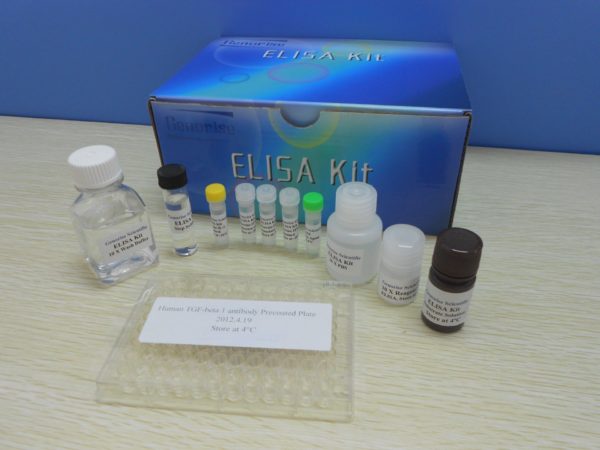
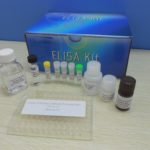
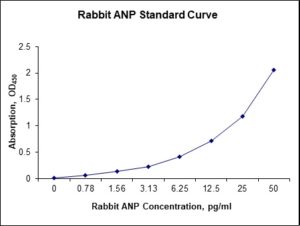
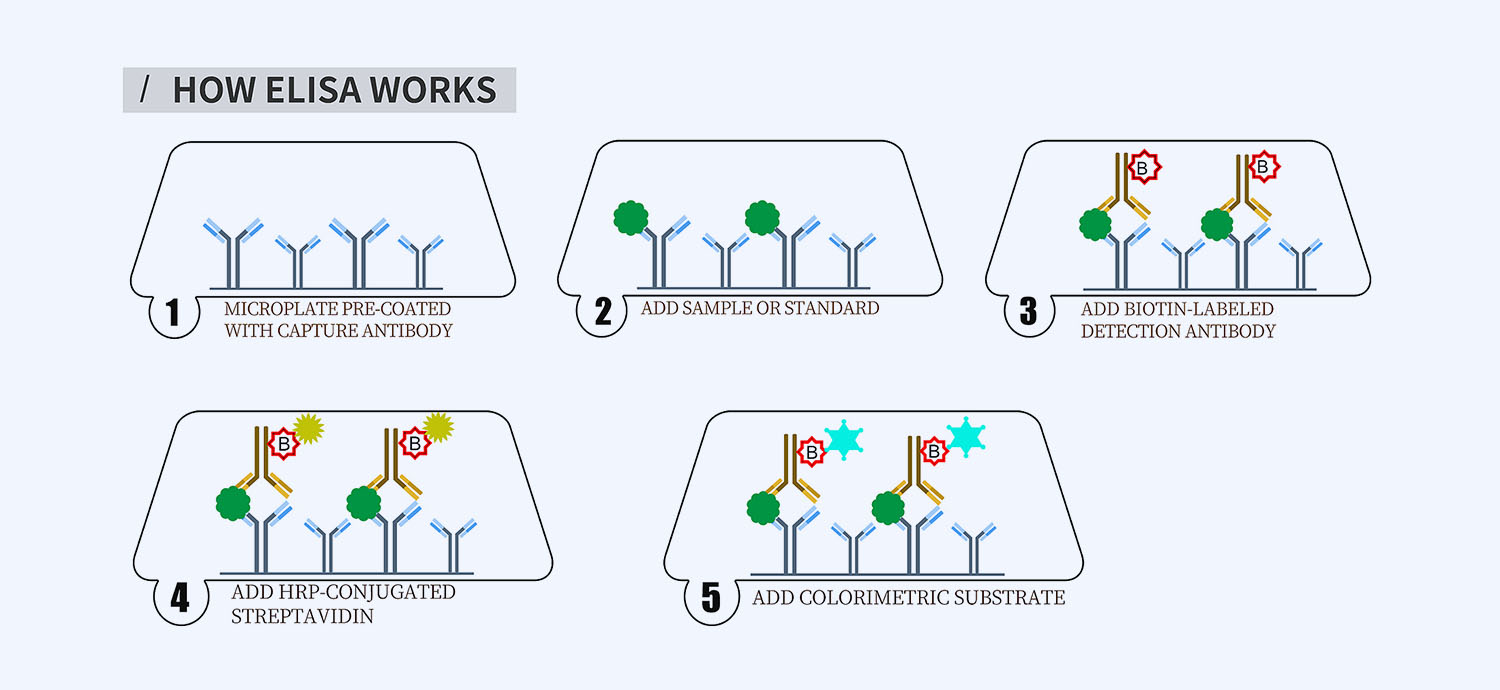
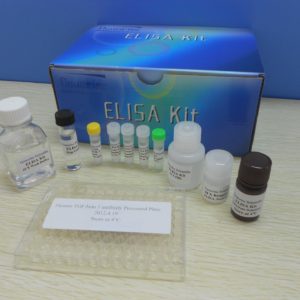
Reviews
There are no reviews yet.